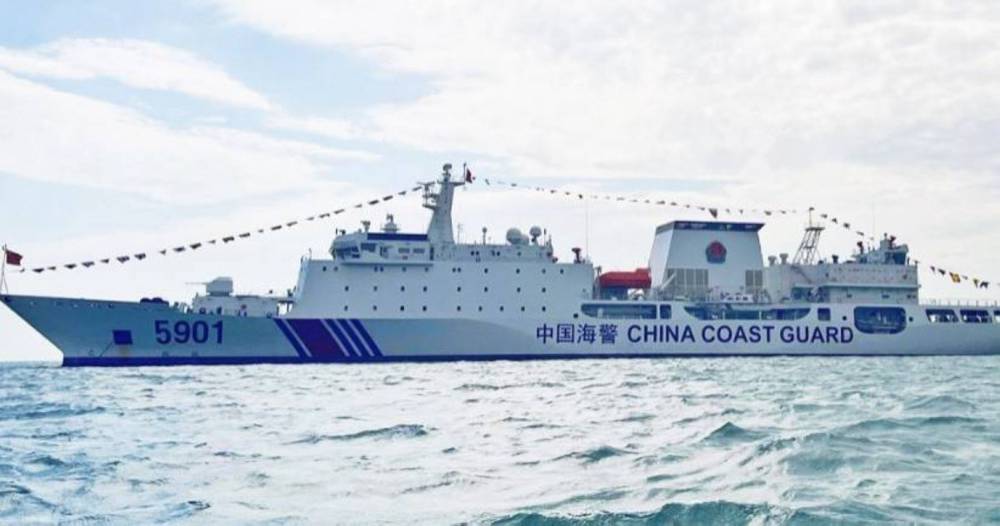China, Russia navies hold drills in PH Sea–report

Chinese warships and a Russian Sovershennyi corvette conducted training exercises while patrolling in the Philippine Sea, Russia’s TASS state news agency reported, citing the Russian Pacific Fleet press services.
“The Pacific Fleet Sovershennyi corvette, together with a detachment of PLA (People’s Liberation Army) Navy warships… conducted training to inspect a suspicious vessel during a joint naval patrol in the Philippine Sea,” TASS quoted the press service as saying.
“During the episode of inspecting a suspicious vessel, Russian and Chinese naval sailors worked out an algorithm for joint actions,” it added.
The Philippine Sea comprises a section of the western North Pacific Ocean and lies east and north of the Philippines, although it extends into the waters of other countries and territories, including the eastern seaboards of Japan and Taiwan.
There was no immediate comment from the Department of Foreign Affairs.
‘To test, provoke’
But a Filipino political analyst said the holding of joint naval exercises by China and Russia in the Philippine Sea was not surprising.
“If true, this development would not be entirely unexpected. Such activities align with China’s broader strategy of employing gray zone tactics to test and provoke the Philippines, without it being deemed overtly aggressive or significant enough to be deemed as an act of war,” Dindo Manhit, president of think tank Stratbase ADR Institute, told the Inquirer on Tuesday.
“Nevertheless, we assert that while such activities may occur, the Philippines should remain steadfast in asserting its sovereignty and maritime rights over the West Philippine Sea as affirmed by [the] 2016 arbitral award,” the analyst said.
“Any actions within these waters must respect international law, including the Philippines’ exclusive rights in its maritime domain,” Manhit added.
In 2016, an arbitration tribunal upheld the Philippines’ sovereign rights to fish and explore resources within its 370-kilometer exclusive economic zone, and voided China’s sweeping claims to the South China Sea.
Third party state
On Monday, the Philippines signed the Reciprocal Access Agreement (RAA) with Japan allowing troops from both countries to visit and conduct exercises in each other’s territory.
China expressed opposition to the RAA being used to “threaten” a third party state’s interest.
“The exchange and cooperation between countries should not undermine the mutual understanding and trust between other countries in the region. It should not threaten regional peace and stability, target any third party, or harm the interests of any third party,” Ministry of Foreign Affairs spokesperson Lin Jian said at a press conference in Beijing on Monday.
“The Asia-Pacific region does not need any military bloc, still less groupings that incite bloc confrontation or a new Cold War,” he added.
“Any move that undermines regional peace and stability, and harms regional solidarity and cooperation will be met with vigilance and opposition from people in regional countries,” Lin said.
Reuters, the news and media division of Thomson Reuters, is the world’s largest multimedia news provider, reaching billions of people worldwide every day. Reuters provides business, financial, national and international news to professionals via desktop terminals, the world's media organizations, industry events and directly to consumers.
















